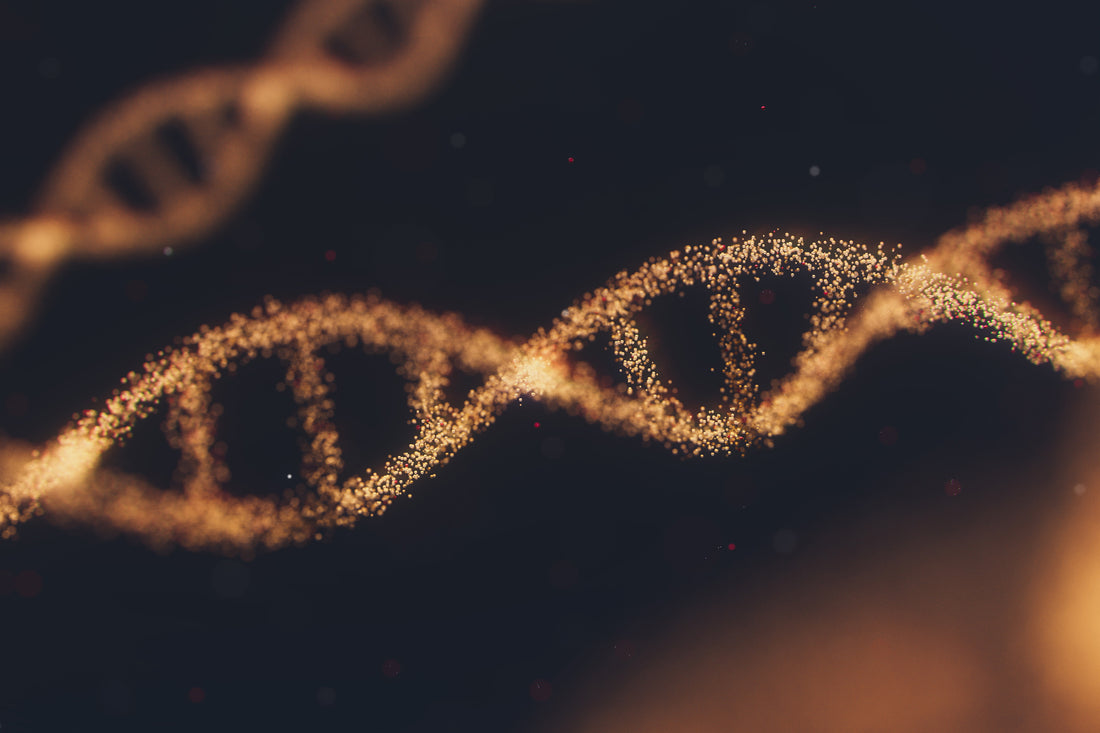Respecting Genetics Through Ancestral Health and Functional Medicine
Ancestral health and functional medicine are movements in healthcare rapidly increasing in acceptance and popularity among both patients and clinicians. Mounting research provides powerful support for each approach, but are the approaches really all that different? Each relies on a specific set of principles to guide the clinician through a healthcare decision-making process that recognizes the body’s ability to self-heal, while also providing interventions to support its efficient biochemical function.
Our modern lifestyles don’t necessarily honor how the human body prefers to be treated. Determining what might be the most appropriate lifestyle requires an understanding of genetic predisposition, environmental influences at play, and one’s current state of health. These are the keys to taking either the ancestral health or functional medicine approach. With each model, once you have gained insight into an individual’s goals and predispositions, one can derive a plan with a foundation that caters to each person’s biochemical individuality.
Ancestral Health
A primary tenant of ancestral health is to understand how a person’s evolutionary heritage can direct them toward an optimal modern lifestyle. This heritage includes both the common heritage shared by all humans, along with the unique heritages shared by diverse groups of humans across the entire globe. Followers of ancestral health have a keen understanding that our modern day diet, lifestyle, and levels of stress have created a world in which our bodies have not evolved to thrive. The desire to return to a lifestyle optimized around both human evolution and a person’s distinctive heritage, is driven by the fact that our modern day lifestyle is largely responsible for the current epidemic of chronic health problems.
A truly unique aspect of the ancestral health movement is how the ever-growing bank of data is built with the difficulty of running high powered clinical trials to test a hypothesis. Researchers and clinicians have examined epidemiological data, based on populations of our current day and age, and examined the historical data we have based on the lifestyle practices of generations and civilizations from the past. The examinations revealed stark contrasts to the way lives have been lived, diets have been followed, and most importantly the overall incidence, and absence, of many diseases we have only seen in modern times. It has been identified that many chronic disease processes such as metabolic syndrome, certain cancers, and heart disease are rapidly increasing in incidence.1
They found that revisiting food practices of our ancestors shows promise in combating this dramatic rise of chronic disease unique to modern day humans.2
It seems that the overarching goal of those with a wish to honor how our ancestors lived, is to focus on the lifestyle differences as a primary intervention to both heal the body and maintain healthy homeostasis.3
Functional Medicine
Although the tone of functional medicine gives off a much more modern feel, you will see there is a core group of principles that guide the direction of most functional medicine practitioners; some of which are based in the ancestral health philosophy. These principles include:
- An understanding of the biochemical individuality of each human being, based on the concepts of genetic and environmental uniqueness.
- Awareness of the evidence that supports a patient centered, rather than disease centered, approach to treatment.
- Search for dynamic balance among the internal and external body, mind, and spirit.
- Interconnections of internal physiologic factors.
- Identification of health as a positive vitality, not merely the absence of disease, and emphasizing those factors that encourage the enhancement of a vigorous physiology.
- Promotion of organ reserve is the means to enhance the health span, not just the lifespan, of each patient.
Upon examining the core principles, it becomes apparent that the goal of the functional medicine practitioner is to respect the biochemical individuality and unique needs of each and every patient. This is performed through a process of examining what the Institute of Functional Medicine has termed “Antecedents, Triggers, and Mediators.” When examining people via this process, it is easy to see the regard that is given to genetic predisposition via antecedents. Functional medicine practitioners emphasize the importance of understanding patient’s individual genetics and the importance of considerations gleaned from unique evolutionary heritage. A specific example of this could be the fact that many northern Europeans, especially those of Irish descent tend to have an increased incidence of celiac disease. This is due to chromosomal irregularity encoding for immune system regulation.4 In the functional medicine thought process, triggers refer to something specific that triggered a decline in health due to the antecedents present. This is generally driven by an accumulation of lifestyle choices and other environmental factors; some of which can be acute infection or trauma. The last portion, mediators, is the aspect responsible for keeping your body from returning to a healthy level of homeostasis. These mediators can include anything from stress, sleep, exercise, diet, overall nutrition, or relationships.
The use of epidemiology is again, very important to the development of sound functional medicine interventions. With a general lack of clinical trials studying the assessment of function and appropriate biochemical interventions, it is important for functional medicine practitioners to have a sound understanding of foundational biochemistry. They must also understand how specific foods, nutrients, exercise, and external factors can influence human health. When examining health through the functional medicine lens, a skilled practitioner can identify fundamental underlying imbalances which unite most, if not all, of a person’s outward symptoms. 5
Ancestral Health vs. Functional Medicine
This sounds akin to a heavyweight boxing match, but not so much once you start to peel back the layers and understand the ultimate goal of each approach, and the primary therapeutics employed. While there are certainly differences in how to achieve the final goal of vibrant health, the starting points and thought process are very similar.
Each school of thought places a tremendous amount of respect on how the power of genetic predisposition can influence one’s overall health. Each understands that genetics are only the cards we are dealt and it’s the way we play them that carries a far greater level of importance.
The external influence of our foods, exercise and activity, external stressors, environmental effects, and relationships can provide a positive or negative tilt to the end results. Practitioners of ancestral health seem to lean primarily on the judicious use of food, stress management and employing movement-based exercise techniques to appreciate the biomechanical evolution of the human frame. Food, stress modulation and exercise are at the foundation of any functional medicine plan, but many are comfortable with the strategic recommendations of dietary supplementation, and at times the appropriate use of pharmacologic interventions.
When looking to support health, it is important to remember that everyone’s body has unique needs based on individual biochemistry and unique genetic make-up. Researchers have demonstrated that when clinicians value the genetic uniqueness created through evolutionary changes, patients are provided with a highly individualized and effective plan based on their unique needs, designed to efficiently rejuvenate their health. It seems that regardless of approach, whether it be ancestral health or functional medicine, the key is to remember that each approach is rooted in understanding the question of why a patient is struggling with their current level of health.
References
- 1. Wu S Green A. (2000). Projection of Chronic Illness Prevalence and Cost Inflation. RAND Corporation.
- 2. Jew S, AbuMweis SS, Jones PJ. (2009). Evolution of the human diet: linking our ancestral diet to modern functional foods as a means of chronic disease prevention. J Med Food;12(5):925-34. doi: 10.1089/jmf.2008.0268. Review. PubMed PMID: 19857053.
- 3. www.ancestralhealth.org. Available at: www.ancestralhealth.org Accessed April 25, 2016
- 4. Brophy K, Ryan AW, Thornton JM, Abuzakouk M, Fitzgerald AP, McLoughlin RM, O’morain C, Kennedy NP, Stevens FM, Feighery C, Kelleher D, McManus R. (2006). Haplotypes in the CTLA4 region are associated with celiac disease in the Irish population. Genes Immun.;7(1):19-26. PubMed PMID: 16237465.
- 5. www.functionalmedicine.org. Available at: www.functionalmedicine.org Accessed April 25, 2016

















